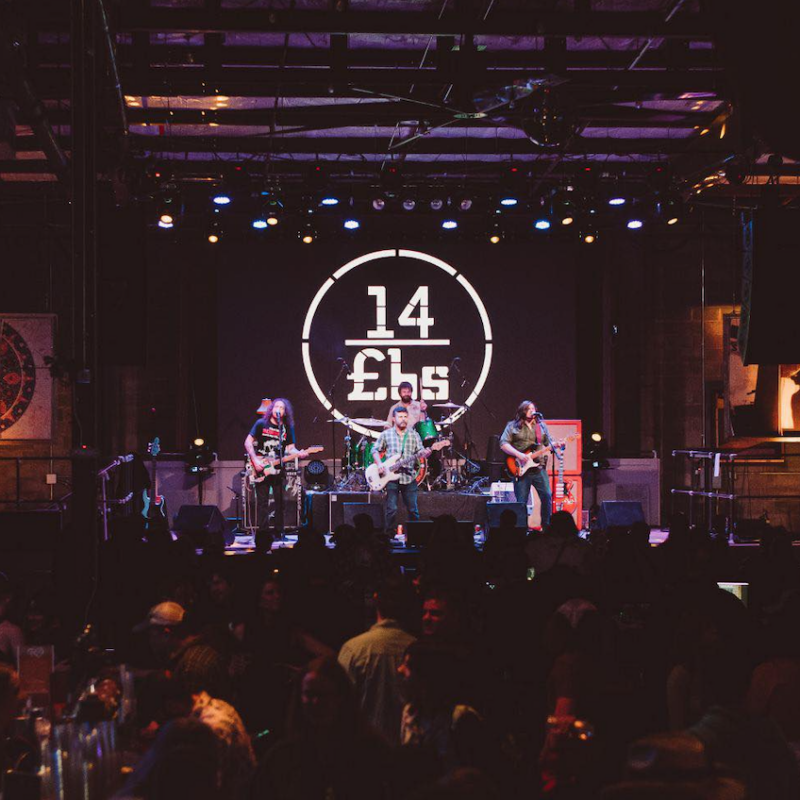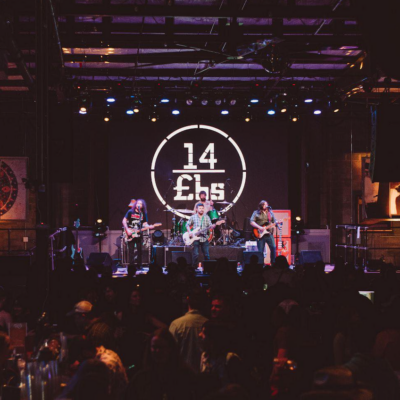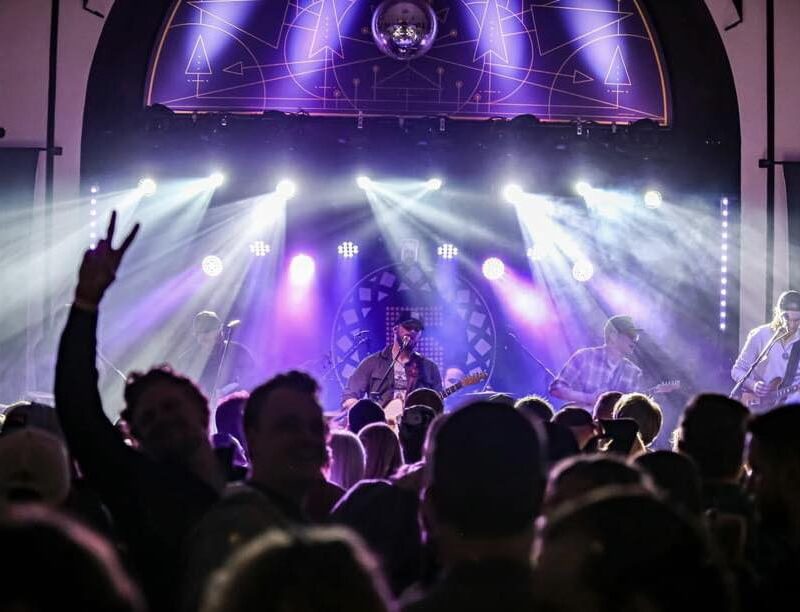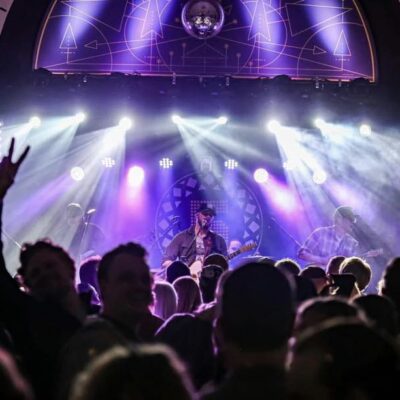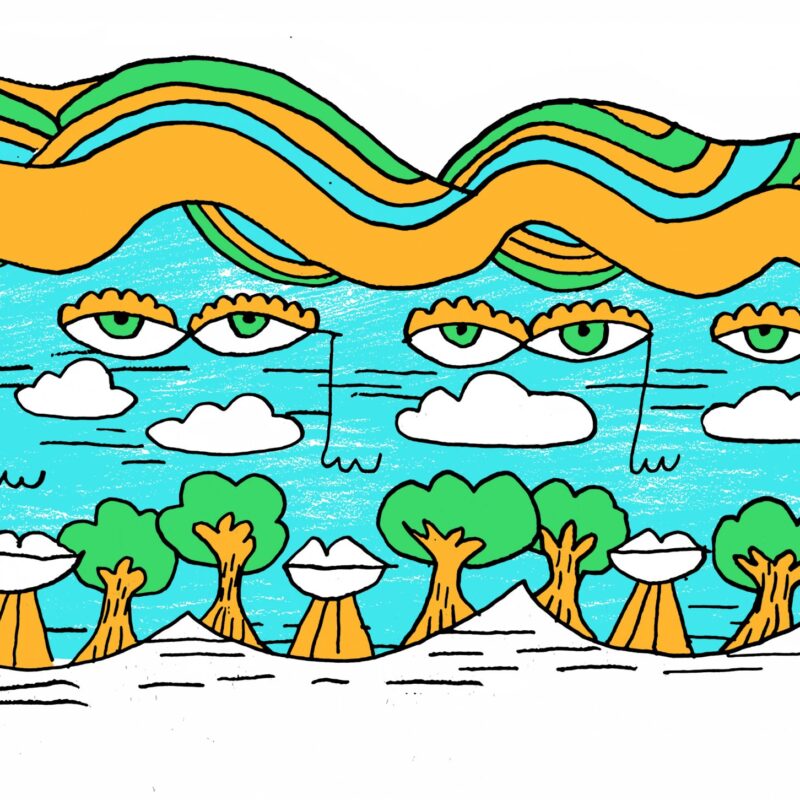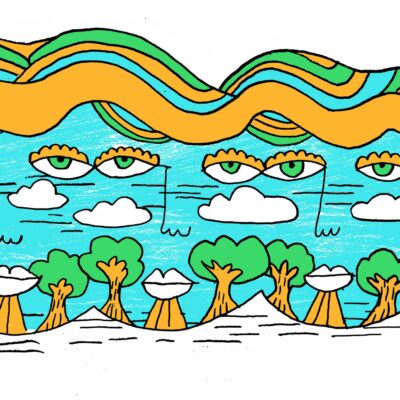When Scott Hutchison started writing songs, he wasn’t sure he wanted to be heard. He says he intentionally mumbled early in his career so people wouldn’t understand his lyrics. His band’s name, Frightened Rabbit, was taken from a nickname his mom gave him because he was such a shy kid.
What a difference a bit of critical acclaim makes. After the Scottish rock quintet’s second LP, The Midnight Organ Fight, made a splash in the states, Hutchison realized he had an audience. The next effort, The Winter of Mixed Drinks, was successful enough to earn the band a deal with a major record label.
Now, touring in support of Frightened Rabbit’s latest album, Pedestrian Verse, Hutchison took some time to tell C-VILLE Weekly about the ride he’s been on and what the band will bring on October 14 when they perform at the Jefferson as well as an in-studio appearance at WNRN at 3pm that day. (updated 10/14 with link to in-studio)
C-VILLE Weekly: Pedestrian Verse is your first major label release. How has that changed things?
Scott Hutchison: It changed things in a way I didn’t expect. When we started making the record, I had the same major label fears anyone might have—they would be heavy handed and say, “you need a single and you need to write a certain way.” What actually happened was we got more freedom and more resources and more time than we’ve ever had to write a record. It ended up being a far more creatively rich process than we’d ever had before. There were times when I was ready for a fight with them, but it never happened.
Did you try to pick a fight at least?
A couple of times when I was wasted, yes, but I was always wrong.
It does seem like you guys have a more major label sound now.
I think that’s the direction we were headed anyway. There wasn’t any kind of compromising on this record. It is a realization of a sound that we have been working toward over the course of three records. It’s just come from experience and becoming better at songwriting and performing. For me, it is a more refined record than we have ever made.
You guys are playing bigger venues in the States these days. What’s that been like?
The U.S. audience has been great. We just finished two weeks with The National, and large venues don’t really daunt us as much as they did before. We felt ready. I think our music fits that setting well. You have 45 minutes to convince lots of skeptical people they should check out your band after they leave the venue, and we felt that happen.
How do you keep from getting burned out?
Part of the learning curve is to keep taking each day as it is and not think about the next. If you think about the string of dates you have in front of you too much, it is going to give you a panic attack. If you focus on one show at a time, it allows you to make sure every show is the best it can be.
Is there any baggage to being a British band touring the U.S.?
I think there is a difference between being a British band and a Scottish band in the States. Especially early on in our career, we were more popular here than the U.K. There is a tradition of Scottish guitar music that was started by Mogwai and Teenage Fanclub. There is also affection for Scottish people in general, and I think the audience enjoys the sound of the Scottish accent. I can certainly see us continuing to grow in the U.S., and part of the reason for that is our Scottishness.
I once heard you guys described as Scottish emo. Do you relate to that?
There are a couple of ways to interpret the word emo. From years back when emo meant bands like Death Cab for Cutie and Jimmy Eat World, that is something I can associate with. But the word now has come to mean something entirely different, and I don’t associate with it as much. Now, it kind of means all black clothes and skinny jeans and generic guitar playing.
Midnight Organ Fight is typically referred to as a “breakup album.” How has your songwriting progressed since then?
When I was writing Midnight Organ Fight, we didn’t have an audience and I was unaware anyone would hear it anyway, so I wrote in a personal manner without censoring myself. When it came out and got attention, I thought, “holy shit, I don’t know if I’m comfortable with that.” I censored myself on the follow-up, and I think that was a mistake. So for this one I decided not to censor myself. On this record, I was trying to write more about other people’s lives. In the past, I have written about my own life a hell of a lot, so it was a challenge to see if I could write in a different way.
Most of your songs are pretty serious, but there is also a cheekiness to them, right?
That is something that wasn’t even conscious really, but it is something of a Scottishness or British kind of sensibility to treat disaster and heartache and angst with a sense of humor. That is the way I treat it in life as well, for better or worse.
